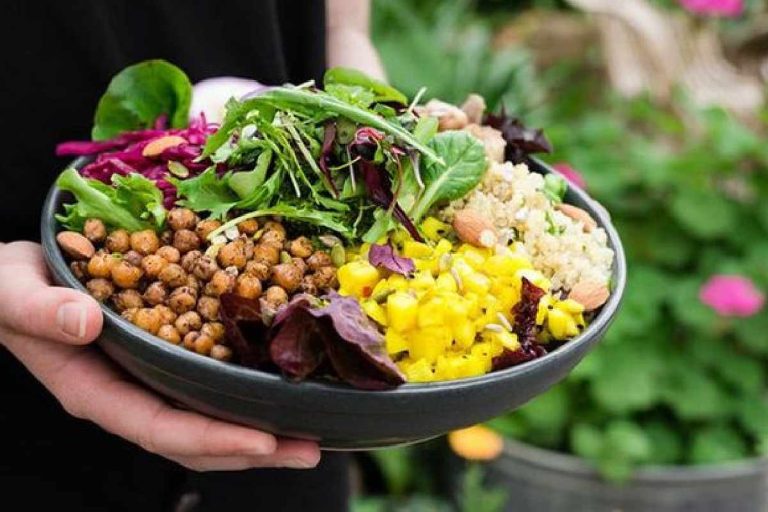Plant-Based Diets: A Beginner’s Guide to Making the Switch
The journey towards a plant-based diet marks a transformative step towards embracing a lifestyle that benefits personal health, the environment, and animal welfare. A plant-based diet focuses on consuming whole, unprocessed foods from plants, including fruits, vegetables, grains, nuts, and seeds. This dietary shift has gained momentum due to its association with numerous health benefits, such as lower risks of heart disease, hypertension, type 2 diabetes, and certain cancers. Moreover, the environmental and ethical implications of reducing animal product consumption have propelled this movement into mainstream popularity. This article aims to demystify adopting a plant-based diet, offering essential nutritional insights, practical transition tips, and simple recipes to help beginners confidently navigate their new dietary landscape.
Table of Contents
Understanding Plant-Based Diets
Vegan, vegetarian, and plant-based terms often intertwine yet hold distinct meanings. Vegan diets eliminate all animal products, including dairy and eggs, focusing solely on plant-derived foods. Vegetarian diets may include dairy and eggs but exclude meat and fish. A plant-based diet, while similar to veganism, emphasizes whole, minimally processed plant foods but may occasionally incorporate small amounts of animal products. Central to a plant-based diet are fruits, vegetables, whole grains, legumes, nuts, and seeds, forming a nutrient-rich foundation supporting many health benefits. Embracing these foods can lead to improved weight management and a decreased risk of developing chronic diseases, thanks to their high fiber, vitamin, mineral, and phytonutrient content.
Getting Started with a Plant-Based Diet
Transitioning to a plant-based diet doesn’t have to be an all-or-nothing approach. Start by gradually increasing your intake of plant-based foods while simultaneously reducing animal products. Begin with familiar foods, incorporate more vegetables into meals, and experiment with meat substitutes. Stocking your pantry with whole grains such as quinoa, brown rice, barley, legumes, nuts, seeds, and spices lays a solid foundation for plant-based cooking. These staples allow for endless creativity and ensure you’re never far from a nutritious meal.
Navigating social situations and dining out may initially seem daunting. However, most restaurants now offer plant-based options, and being transparent about your dietary preferences can make social dining a stress-free experience. Don’t hesitate to explore ethnic restaurants, many of which naturally offer a variety of plant-based dishes. Learning key phrases to communicate your dietary needs can be incredibly helpful when traveling or exploring new culinary settings. Embracing a plant-based diet is a rewarding journey that enhances your health and contributes positively to the environment and animal welfare. With these tips and insights, you’re well-equipped to begin exploring the vibrant world of plant-based eating.
Essential Ingredients for Vegetarians: Expanding Your Pantry
Transitioning to a vegetarian diet opens up a world of flavorful and nutritious possibilities. Keeping various versatile ingredients on hand is critical to making the most of your vegetarian meals. These staples add depth and richness to your dishes and ensure you’re getting a wide range of nutrients. Let’s explore some essential ingredients to stock up on, including the mighty avocado.
Avocados
Avocados are a powerhouse of healthy fats, vitamins, and minerals. Their creamy texture and rich flavor make them perfect for adding a touch of luxury to salads, sandwiches, and even smoothies. For a satisfying breakfast, try mashing them on toast with a sprinkle of salt and chili flakes. Store them at room temperature to ripen quickly, or keep them in the fridge to preserve their shelf life.
Legumes (Beans, Lentils, Chickpeas)
Legumes are essential to the vegetarian diet, providing a hearty source of protein, fiber, and iron. They’re incredibly versatile—use them in soups, salads, curries, and tacos. For a quick lunch, toss some chickpeas with your favorite spices and roast them until crispy.
Whole Grains (Quinoa, Brown Rice, Barley)
Whole grains fill and pack a nutritional punch with fiber, B vitamins, and minerals. They serve as an excellent base for bowls and salads. Quinoa, in particular, is a complete protein, making it a valuable ingredient for vegetarians.
Nuts and Seeds (Almonds, Chia Seeds, Flaxseeds)
Nuts and seeds are excellent sources of healthy fats, protein, and vitamins and minerals. Sprinkle them on oatmeal salads, or blend them into smoothies for an extra nutrient boost. Chia seeds soaked in almond milk overnight can be transformed into a delicious pudding perfect for breakfast.
Leafy Greens (Spinach, Kale, Swiss Chard)
Rich in vitamins, minerals, and fiber, leafy greens should be a staple in every vegetarian’s kitchen. They can be used in smoothies, sautéed as a side dish, or added to soups and stews for green goodness.
Tofu and Tempeh
These soy-based proteins are fantastic meat substitutes. They absorb flavors well and add substance to any dish. Marinate them for stir-fries, bake them for a crispy snack, or crumble them into scrambles.
Fresh Herbs and Spices
Herbs and spices are the secret to turning simple ingredients into gourmet meals. Keep a good selection to add flavor and zest to your cooking without extra salt or fat.
Keeping these ingredients in your pantry and fridge will enable you to create various nutritious and delicious vegetarian meals. Experimenting with these staples expands your culinary repertoire and ensures that your vegetarian diet is balanced and fulfilling.
Making the Transition Easier
Remember, transitioning to a plant-based diet is about progress, not perfection. Don’t get discouraged by minor setbacks; every plant-based meal is a step in the right direction. Joining online communities or local groups can offer invaluable support, providing a platform for sharing experiences, advice, and recipes that can make your journey smoother and more enjoyable.
A plant-based diet offers numerous benefits for your health, the planet, and animal welfare. This guide explored how to navigate the transition from understanding the basics to stocking your pantry and dining out. Let this journey be an opportunity to explore new foods and flavors, all while making a positive impact. Embrace the adventure toward a more sustainable, healthful, and compassionate way of eating.


